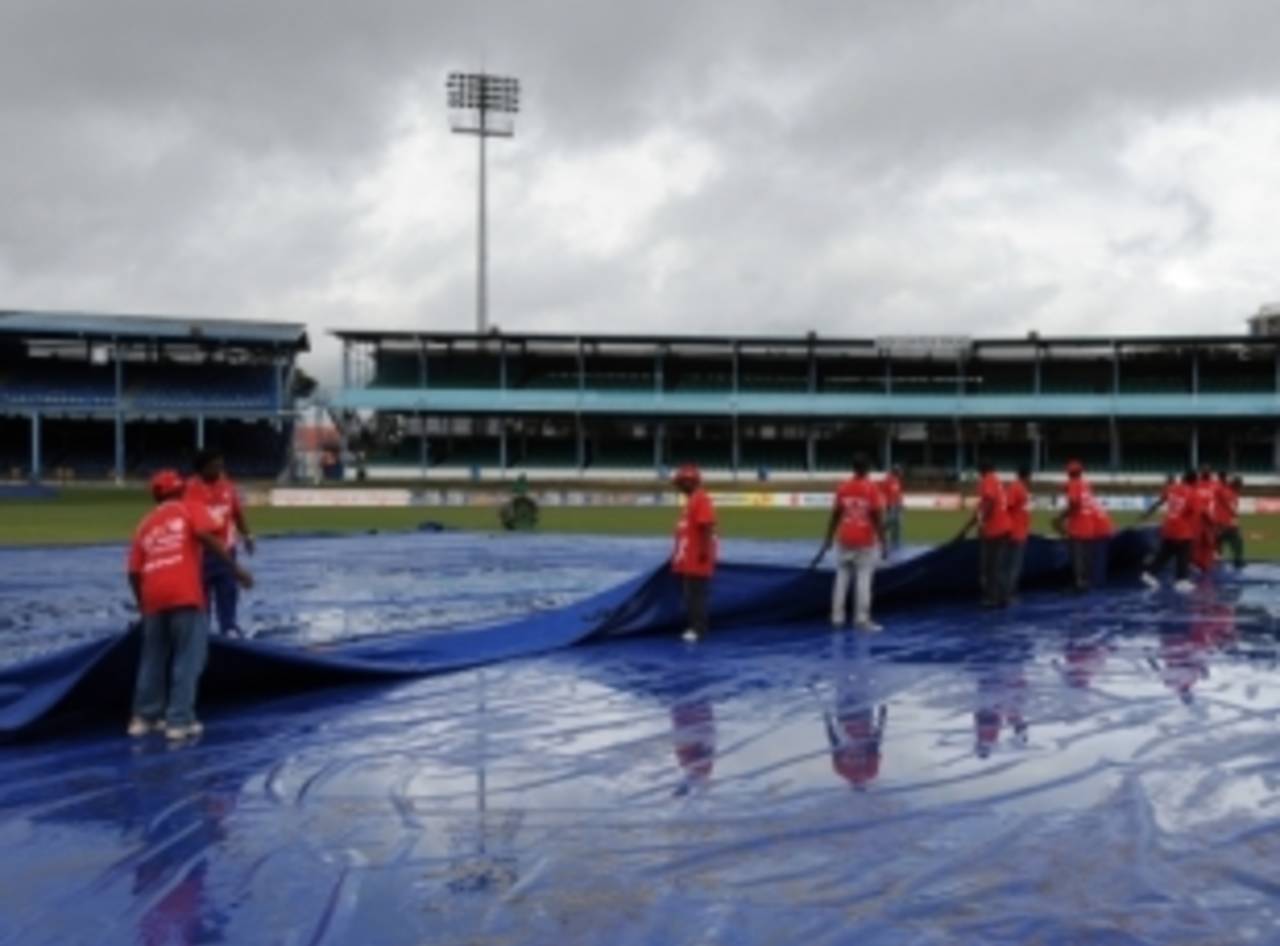Commercial interests stopped play
Twenty minutes of play was lost in bright sunshine on the second morning of the Trinidad Test because officials wanted to make sure no commercial contracts would be breached
Daniel Brettig in Port-of-Spain
Apr 17, 2012, 6:00 PM

It was a power failure, rather than rain, that delayed the start of the third day • AFP
Twenty minutes of play was lost in bright sunshine on the second morning of the Trinidad Test because officials wanted to make sure no commercial contracts would be breached if the match continued without television coverage due to a power failure.
In a Test that had already lost two hours to rain and lost more time on the second afternoon, the sight of the West Indies and Australia players marching back off the ground after assembling for the scheduled 9.30am start drew groans from the Tuesday crowd in Port-of-Spain. Play did not get underway until 9.50.
Observers at the ground, including local radio commentators, speculated that upon hearing in the middle that DRS referrals would not be available, Australia's captain Michael Clarke took his men from the field. However ESPNcricinfo understands that none of the players, umpires Marais Erasmus and Ian Gould, or the match referee Jeff Crowe, knew of the power cut until informed by the television production crew moments before the scheduled start.
Upon discovering it, the umpires took the players from the field and a meeting was convened between management on both sides, the match officials and the WICB. The meeting concluded that play should re-start at 9.50 irrespective of whether or not the power returned. Any further cuts to television's power source at the Queen's Park Oval will not stop play from continuing.
The power outage on the second morning was not the first of the match, as one Michael Beer over on the second evening was played out without television working at the ground. In that over Beer appealed strongly for lbw against Adrian Barath, but Australia were unable to refer the decision due to the lack of television pictures.
Matches have gone on in the past when DRS referrals are not available for environmental or technical reasons. Australia played on in the field against New Zealand at Wellington's Basin Reserve in 2010 when strong winds shook television cameras and rendered ball-tracking technology inaccurate.
There have also been past instances of matches being delayed by the loss of television pictures, including the India versus Sri Lanka ODI at Bellerive Oval in Hobart during this year's triangular series in Australia.
The relevant passage of the ICC's Test match playing conditions state that the match referee has the final call on the use of DRS in a match. "Where practical usage or further testing indicates that any of the above forms of technology cannot reliably provide accurate and timely information, then it may be removed prior to or during a match," the conditions state. "The final decision regarding the technology to be used in a given match will be taken by the ICC Match Referee in consultation with the ICC Technical Official, ICC Management and the competing teams' governing bodies."
Daniel Brettig is an assistant editor at ESPNcricinfo. He tweets here